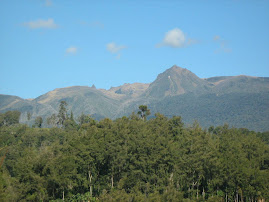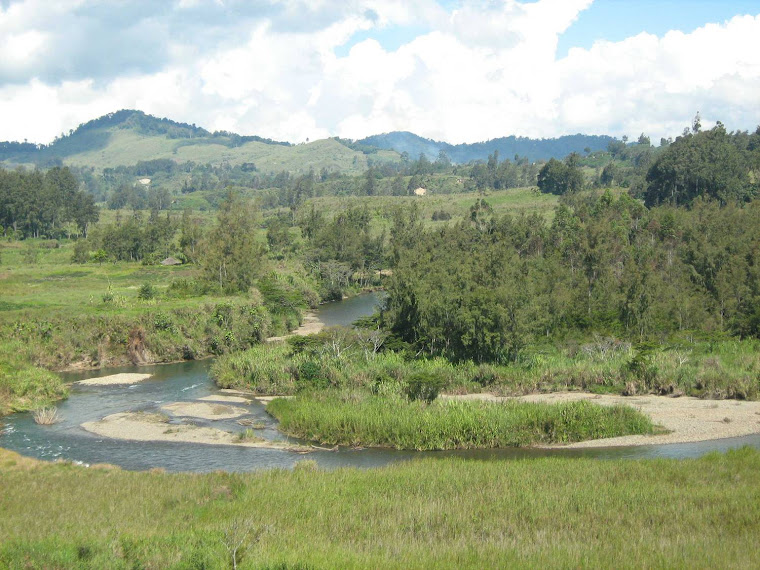 Caption: Quality supervision official Qu Rui'e(right) monitors milk tests at a dairy company in Shaanxi Province on October 4. Latest tests on Chinese dairy products have found no traces of melamine, following a scandal involving powdered milk tainted with the chemical.(Xinhua Photo)
Caption: Quality supervision official Qu Rui'e(right) monitors milk tests at a dairy company in Shaanxi Province on October 4. Latest tests on Chinese dairy products have found no traces of melamine, following a scandal involving powdered milk tainted with the chemical.(Xinhua Photo)Globalization and the question of food security
By Mathew Yakai, Changchun, China
SCANDAL of melamine – contaminated milk products that sickened thousands of babies throughout Mainland China poses great risks to humanity, not only in China but throughout the world given the “globalization” trend today.
China has admitted the scandal and promised it will tighten up its production process in the future.
The unfortunate scandal came at the time when China received overwhelming applause following the successful hosting of the Olympic Games and the return of Shenzhou 7 manned rocket.
President Hu Jintao admits to the world through the United Nations that China has weakness in its food manufacturing and will improve on that. This is an assurance to the world from the top leader.
But the fact that there may be more food scandals in other manufactured products in the future, not only from China but other countries where Papua New Guinea (PNG) trades with poses greater risks.
If you check all supermarkets in Port Moresby and other major towns, you will discover that the shelves and freezes are occupied with foreign manufactured food staff.
Even the mere agricultural produces that can be grown in PNG are imported.
Due to “globalization”, a particular food that you eat is produced in many countries, through many assembly lines and eventually ends up on your dining table.
Is it the result of “globalization”, often treated by politicians and journalists as something new?
Although it is true that the end of the Cold War and the information revolution accelerated interdependence at multicontinental distances, the 1990s was not the first era of globalization.
As early as 1848, Marx and Engels wrote that “in place of the old local and national seclusion and self-sufficiency, we have intercourse in every direction, universal interdependence of nations.”
Globalization is also sometimes treated as if it were synonymous with Americanization. But globalization is more a product of modernization than of Americanization, according to academia Joseph Nye.
Advances in technology and communication were creating multicontinental interdependence long before there was a United States. Indeed, the United States itself was the product of seventeenth- and eighteenth-century globalization.
If globalization creates interdependence amongst states in this international system of anarchic world order then the “food safety issue” should not be compromised with human health and societal order.
In china alone, the contaminated baby formula has killed at least three infants and left more than 53,000 with urinary tract problems, including kidney stones. About 13,000 infants are still being treated in hospitals, according to Xinhua.
The “middle kingdom”, no doubt puts people first in its economic, political and social development and would never had any intention to allow the companies involved in the production of baby milk to sicken the vulnerable.
People who have followed China’s integration in the regional and global system since 1978 would agree that this scandal is “unfortunate”, and would never tarnish China’s diplomacy in international relations.
China alone enjoys a huge domestic market. But what is important is the regulation that governs food security, both in China and other countries.
PNG, as a developing country has failed to address the issue of food security or safety, if it will be a serious problem today, though is has been on the national agenda.
Food security originated only in the mid-1970s, in the discussions of international food problems at a time of global food crisis.
The initial focus of attention was primarily on food supply problems - of assuring the availability and to some degree the price stability of basic foodstuffs at the international and national level.
That supply-side, international and institutional set of concerns reflected the changing organization of the global food economy that had precipitated the crisis.
Given this, PNG is located at a vulnerable point, bombarded with imports from all over the world, and not only China as in the case of baby milk.
Lamp flaps, for instance, that is imported from Australia, which every knowledgeable person knows that Australians themselves do not consume.
Many Papua New Guinean have died at their prime age, where medical reports reveal of heart failures and other chronic diseases, which are directly caused by the type of food eaten.
Given China’s 1.3 billion people, the country takes food security as one of its main concerns to make sure the people do not go hungry.
The 14 Pacific island countries have a population of approximately 8 million, with PNG being the highest with 5.6 million.
Oceania boasts its fertile landmass and vast resources but yet 80 percent of the population does not have three meals a day, and most food eaten do not comprise the necessary elements the body requires.
The minimum wages are very low and most families live below one U.S. dollar per day. The government does not pay any attention on this vast majority, making them prone to products of low quality that threatens future generations.
But given its land and population size, China is a major contributor to world food security by feeding nearly a quarter of the global population and involving in aid to other countries, China's agriculture minister admits.
"China has managed to feed 1.3 billion people, mostly relying on domestic production, which in itself is a major contribution to the world food security," Agriculture Minister Sun Zhengcai told a world summit on food security hosted by the UN Food and Agriculture Organization (FAO) in June this year.
When the world is experiencing a dramatic price hike, Sun said besides the success of feeding almost a quarter of the world population, China is also committed to contributing to the development of the world food and agriculture.
"China actively makes contributions and donations, within the limits of its capacity, to international food and agriculture agencies and provides food assistance to countries in food emergencies," he said.
"On the other hand, China is taking advantage of its agricultural expertise such as hybrid rice to assist other developing countries to increase agriculture and food production," the minister added.
China has established or is establishing over 20 demonstration centers of agriculture technology in Asia, Africa and Latin America, and has dispatched nearly 1,000 agricultural experts and technicians to other developing countries to train locals, according to the Chinese official.
China will continue to strengthen the exchange and cooperation with other countries in the field of food and agriculture and Oceania stands to benefit.
If China can feed its vast population then PNG with only 5.6 million people with vast arable land mass has no reason to go for a day without breakfast or lunch as seen in most urban areas, leave alone the rural 80 percent.
Instead of engaging the unemployed youths in agriculture in the country that can promote food security, PNG government and other regional governments like Fiji, Solomon Islands and Vanuatu are crying at the corridor of Canberra to engage them as seasonal workers.
Theoretically, the regional governments are exporting bunch of youths, who will be exploited by the Australian farmers, and the produce will be imported again by the regional governments.
It will be a vicious cycle, making the regional governments so dependent on Canberra, this time not on the “boomerang aid” but Australia will decide what the pacific islanders should have in their meals.
Oceania’s sovereignty will be tugged under Canberra’s hegemony, where the regional governments will not have any bargaining powers.
Taipei, Beijing and Seoul scientists have reveal that rice can be grown in surplus locally to feed PNG. Yet Australia plays down the research just to protect its market.
May be the island leaders have their dining room and pub in Canberra while running their respective offices in their home countries.
China’s recent leadership demonstration since the Melamine scandal broke out shows how serious they are with food security.
At a press conference on Wednesday (8th Oct), Wang Xuening, deputy director of the ministry's Health Supervision Bureau, released new rules for the dairy industry.
Wang said a maximum of one milligram of melamine per kilogram of infant formula was the new limit. A maximum 2.5 milligrams per kilogram was allowed for liquid milk, milk powder and food products containing at least 15 percent milk.
"The limits mainly aim to curb the deliberate adding of melamine," he said.
According to the standards of the Unites Stated Food and Drug Administration, the safety reference value (tolerable daily intake or TDI) for melamine is 0.63 milligrams per kilogram of body weight per day.
A child weighing 30 kilograms would have to drink around 1.2 kilograms of milk powder containing 15 milligrams of melamine per kilogram a day to have exposure reaching the TDI.
In tests by China's quality watchdog, the State Administration of Quality Supervision, Inspection and Quarantine (AQSIQ), last month (Sept), Sanlu products had the highest content of melamine, at 2,563 milligrams per kilogram, out of the 109 baby formula producers tested.
The country had sent more than 150,000 officials to overhaul milk-collecting stations and cow feed supply chains. Altogether 18,803 milk-collecting stations had been registered and checked by then.
The ministry also investigated 98 dairy producers and farms, banned 151 illegal companies and transferred to the police three manufacturers of feedstuff that contained melamine.
It urged local authorities to reinforce bailout measures and technical guide on cow feeding and epidemic control.
In an effort to encourage dairy producers to buy raw milk, the Ministry of Finance said last month (Sept) that interest rate for loans to dairy producers' raw milk purchase will be reduced by 3.1 percent, or half of the six-month lending rate, from October to December.
"Melamine is neither a raw food material nor a food additive. Deliberately adding the chemical to food items is prohibited. Once such cases are spotted, they will be investigated according to law,” the ministry said.
So far, 27 people have been arrested over the scandal, while hospitals through out China treats the sickening babies, and subsidizing the farmers and setting up rules to ensure such scandal do not repeat.
But one fact remains. Melamine is used to make plastics and food packaging materials.
When asked why China allowed any melamine at all dairy products, Wang said it was impossible to have "zero levels". The chemical can seep into food from its packaging.
So, any packaged manufactured food can contain melamine, not only from China but other countries as well.








